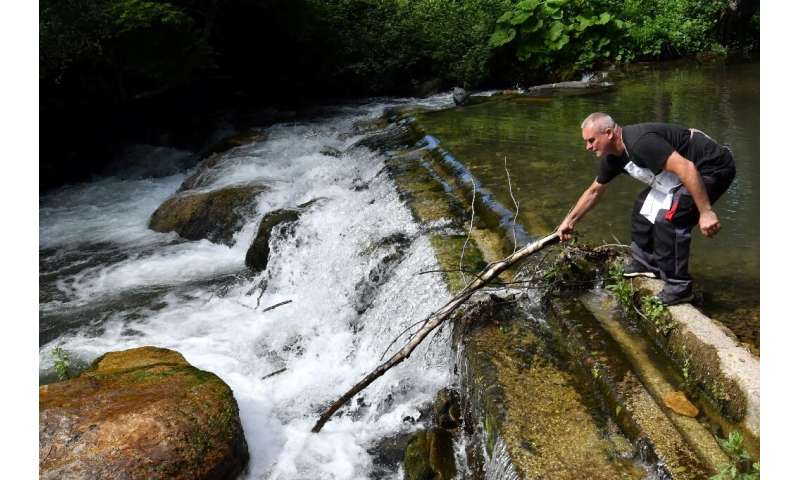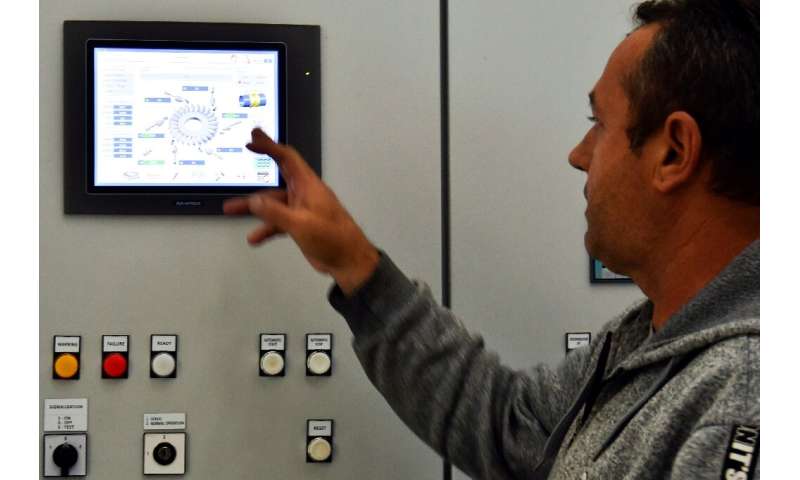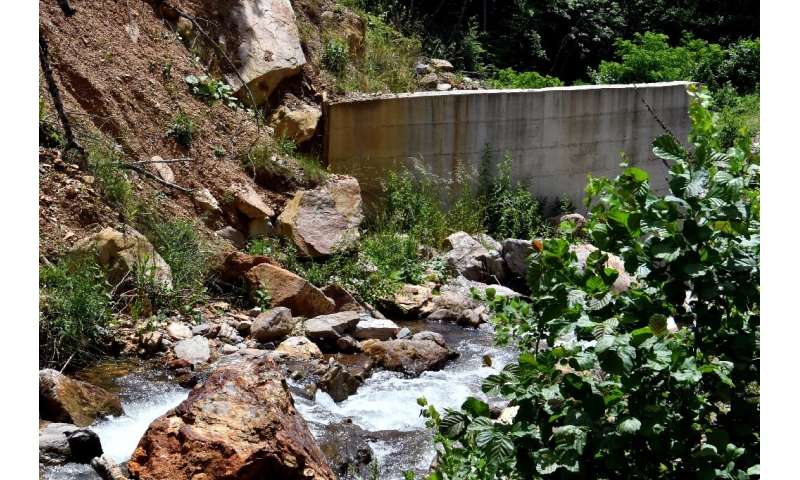Looking out over the clear cascades of the Neretvica river in the heart of Bosnia, Safet Sarajlic says he is ready to spill his blood to defend the waterway from a hydropower project threatening its vital ecosystem.
In a country criss-crossed by hundreds of rivers and their tributaries, the hydro sector is booming in Bosnia but so is resistance against it: locals have declared war on the industry, leading to the abandonment of several projects.
The latest flashpoint is the Neretvica, which springs from a source 1,800 metres high in central Bosnia before threading through dozens of hamlets for some 27 kilometres (17 miles).
“For us, this river is life. It’s the artery of the valley,” says 50-year-old Sarajlic, one of the leaders of the “Pusti me da tecem” (“Let me flow”) protest movement.
Clean enough to drink, the river is also hailed for its biodiversity, hosting eight types of fish, including two endangered species, plus the protected white-clawed crayfish, according to a 2017 study by the European Bank for Reconstruction and Development (EBRD).
Ecologists say the planned construction—which would see 15 small plants installed across the Neretvica and its tributaries—would threaten this delicate ecosystem and the livelihoods of villagers.
In June, protests by locals prevented the building of the first two plants by blocking the road to their village and forcing representatives from the state-owned company behind the project into talks.
“There are 20 young men here ready to give their lives for the Neretvica,” Sead Hakalovic, another protest leader, said before the company agreed to retreat.

Tomatoes and raspberries
Home to some 2,000 people, the Neretvica valley is known for its top quality tomatoes. Bountiful raspberry plantations also line the river banks.
“Agriculture provides a living for most of the people here. If the power stations are built, there will be an exodus,” warns Hakalovic.
Over the past 15 years or so, 106 mini plants have been built in Bosnia and “at least 340 more are planned, under preparation or under construction,” Anes Podic, head of the environmental campaign group “Eko akcija” (“Ecological action”), told AFP.
Faced with the resistance, regional authorities have announced a three-month moratorium on the construction of new plants and new legislation to “protect the rivers”.
But activists are calling for the projects to be scrapped entirely, arguing that the environmental damage far outweighs the “tiny” quantities of electricity produced by plants with a capacity of 10 MW.
According to Anes Podic, the small hydro plants accounted for only three percent of Bosnia’s total electricity production last year, while some 60 percent was drawn from coal.
And yet some of the stations, which divert water through a pipe into a turbine two or three kilometres downstream, are drying out the rivers to dangerous levels, according to Podic.

The “biological minimum” needed to sustain the rivers is often not respected, says Podic.
“They redirect the last drop of water to produce electricity and increase their profits.”
‘Exaggerated accusations’
“These accusations are greatly exaggerated,” responds Senad Husnic, whose company Amitea is part of the Neretvica project and has been operating two other power plants in the same region since 2016.
Campaign groups have circulated photos of the dry riverbed left in those sites.
“It’s true that the bed was dry when they photographed it, but the power station was then shut down because there was no water,” he tells AFP, stressing that environmental regulations are respected.
Yet construction permits are often issued based on water level studies dating back to the 1960s or 1970s, according to Amir Variscic, from the NGO Zeleni-Neretva.
“The climate has changed. Droughts now lasts more than half the year and rainfall is rare and torrential.”

Some campaigners also criticise legislation that is “favourable” to investors, leading to a gold rush atmosphere as firms seek easy cash.
The conditions are “attractive,” admits Edhem Bicakcic, a former political leader whose company has become a leader in the sector.
Since 2005, he has built 45 small power plants in Bosnia and Albania for various investors, “without protests, in accordance with the highest ecological standards.”.
But on the left bank of the Neretvica, 70-year-old Hatidza Salcinovic knows where she stands.
She refuses to sell a strip of her land to the builders, which will force them to run their pipes through the other bank of the river.
“I’m ready to fight for this piece of land,” she told AFP. “If everyone does what I do, they’ll never build.”
© 2020 AFP
Citation:
Let me flow: Bosnians wage war on mini hydro plants (2020, July 3)
retrieved 3 July 2020
from https://phys.org/news/2020-07-bosnians-wage-war-mini-hydro.html
This document is subject to copyright. Apart from any fair dealing for the purpose of private study or research, no
part may be reproduced without the written permission. The content is provided for information purposes only.
